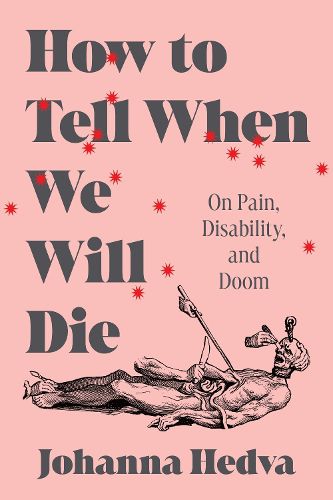Readings Newsletter
Become a Readings Member to make your shopping experience even easier.
Sign in or sign up for free!
You’re not far away from qualifying for FREE standard shipping within Australia
You’ve qualified for FREE standard shipping within Australia
The cart is loading…






The long-awaited essay collection from one of the most influential voices in disability activism that detonates a bomb in our collective understanding of care and illness, showing us that sickness is a fact of life.
In the wake of the 2014 Ferguson riots, and sick with a chronic condition that rendered them housebound, Johanna Hedva turned to the page to ask: How do you throw a brick through the window of a bank if you can't get out of bed? It was not long before this essay, 'Sick Woman Theory', became a seminal work on disability, because in reframing illness as not just a biological experience but a social one, Hedva argues that under capitalism a system that limits our worth to the productivity of our bodies we must reach for the revolutionary act of caring for ourselves and others.
How to Tell When We Will Die expands upon Hedva's paradigm-shifting perspective in a series of slyly subversive and razor-sharp essays that range from the theoretical to the personal from Deborah Levy and Susan Sontag to wrestling, kink, mysticism, death, and the color yellow. Drawing from their experiences with America's byzantine healthcare system, and considering archetypes they call The Psychotic Woman, The Freak, and The Hag in Charge, Hedva offers a bracing indictment of the politics that exploit sickness relying on and fueling ableism to the detriment of us all.
With the insight of Anne Boyer's The Undying and Leslie Jamison's The Empathy Exams, and the wit of Samantha Irby, Hedva's debut collection upends our collective understanding of disability. In their radical reimagining of a world where care and pain are symbiotic, and our bodies are allowed to live free and well, Hedva implores us to remember that illness is neither an inconvenience or inevitability, but an enlivening and elemental part of being alive.
$9.00 standard shipping within Australia
FREE standard shipping within Australia for orders over $100.00
Express & International shipping calculated at checkout
The long-awaited essay collection from one of the most influential voices in disability activism that detonates a bomb in our collective understanding of care and illness, showing us that sickness is a fact of life.
In the wake of the 2014 Ferguson riots, and sick with a chronic condition that rendered them housebound, Johanna Hedva turned to the page to ask: How do you throw a brick through the window of a bank if you can't get out of bed? It was not long before this essay, 'Sick Woman Theory', became a seminal work on disability, because in reframing illness as not just a biological experience but a social one, Hedva argues that under capitalism a system that limits our worth to the productivity of our bodies we must reach for the revolutionary act of caring for ourselves and others.
How to Tell When We Will Die expands upon Hedva's paradigm-shifting perspective in a series of slyly subversive and razor-sharp essays that range from the theoretical to the personal from Deborah Levy and Susan Sontag to wrestling, kink, mysticism, death, and the color yellow. Drawing from their experiences with America's byzantine healthcare system, and considering archetypes they call The Psychotic Woman, The Freak, and The Hag in Charge, Hedva offers a bracing indictment of the politics that exploit sickness relying on and fueling ableism to the detriment of us all.
With the insight of Anne Boyer's The Undying and Leslie Jamison's The Empathy Exams, and the wit of Samantha Irby, Hedva's debut collection upends our collective understanding of disability. In their radical reimagining of a world where care and pain are symbiotic, and our bodies are allowed to live free and well, Hedva implores us to remember that illness is neither an inconvenience or inevitability, but an enlivening and elemental part of being alive.
Discover our latest new release fiction and nonfiction books.
Learn and reflect one essay at a time with these fascinating collections, covering everything from art, science, history and politics.
Discover new nonfiction books at Readings, with biography, memoir, essays and analysis.